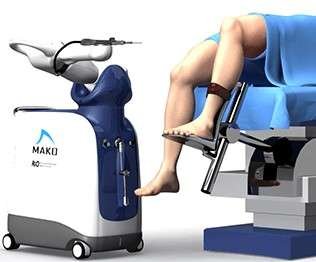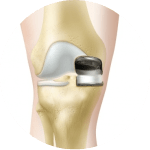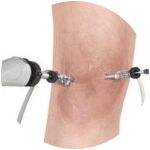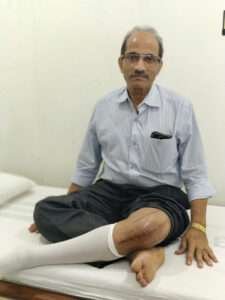
Cost of Hip Replacement Surgery in Mumbai
Hip replacement surgery is a common orthopaedic procedure that is performed to relieve pain and improve the mobility of patients suffering from arthritis or hip fractures. Mumbai is one of the leading cities in India for medical tourism, with world-class hospitals and highly qualified doctors. One such doctor is Dr. Bakul Arora, an experienced orthopedic surgeon in Thane.
What is hip replacement?
Hip replacement surgery is a medical procedure where a damaged or diseased hip joint is replaced with an artificial joint, called a prosthesis. The surgery is typically performed to relieve pain and improve mobility in patients suffering from conditions such as arthritis, hip fractures, or other hip-related injuries or illnesses. During the surgery, the damaged portions of the hip joint are removed and replaced with an artificial joint made of metal, plastic, or ceramic materials. The procedure can be performed using various techniques, including traditional open surgery or minimally invasive surgery, and is typically done under general anaesthesia. Patients can expect a period of rehabilitation and physical therapy after the surgery to aid in recovery and regain mobility.
Types of hip replacement surgery
There are several types of hip replacement surgeries, which may vary based on the patient’s condition, the surgeon’s preference, and the type of implant used. Here are some of the most common types of hip replacement surgery-
- Total hip replacement: This is the most common type of hip replacement surgery, where both the ball and socket of the hip joint are replaced with a prosthesis.
- Partial hip replacement: In this procedure, only the ball of the hip joint is replaced with a prosthesis. This procedure is typically done for patients with hip fractures or other conditions where only the ball of the hip joint is damaged.
- Minimally invasive hip replacement: This technique involves making smaller incisions and using specialised instruments to minimise the trauma to the surrounding tissues. This can result in less pain and a faster recovery time.
- Anterior hip replacement: In this procedure, the surgeon approaches the hip joint from the front, which can result in less muscle damage and a quicker recovery time.
- Ceramic-on-ceramic hip replacement: This type of implant uses ceramic materials for both the ball and socket of the hip joint, which can result in a longer-lasting implant and reduced wear.
- Metal-on-metal hip replacement: This type of implant uses metal materials for both the ball and socket of the hip joint, which can result in a longer-lasting implant, but may be associated with a higher risk of complications.
When hip replacement is needed?
Hip replacement surgery is typically recommended when non-surgical treatments such as medications, physical therapy, and assistive devices are no longer effective in relieving hip pain and improving mobility. It is usually considered for patients who have advanced arthritis, hip fractures, or other hip-related injuries or illnesses that significantly impact their daily activities and quality of life. Some common conditions that may require hip replacement surgery include osteoarthritis, rheumatoid arthritis, avascular necrosis, hip dysplasia, and hip fractures. However, the decision to undergo hip replacement surgery is ultimately made on an individual basis and requires a thorough evaluation by a qualified orthopaedic surgeon.
Preparing for hip replacement surgery
Preparing for hip replacement surgery is important to ensure that the procedure is successful and to minimise the risk of complications. Here are some of the steps that may be taken before hip replacement surgery:
- Medical evaluation: A thorough medical evaluation will be conducted to assess the patient’s overall health and identify any potential risks or complications.
- Medication review: Patients will be advised to review their current medications with their doctor to determine which ones should be continued or discontinued before the surgery.
- Blood tests: Blood tests will be performed to evaluate the patient’s blood count, clotting ability, and overall health.
- Imaging tests: X-rays or other imaging tests may be taken to evaluate the extent of the hip damage and help the surgeon plan the procedure.
- Physical therapy: Patients may be advised to undergo physical therapy to improve their hip strength, flexibility, and mobility before the surgery.
- Lifestyle modifications: Patients may be advised to make certain lifestyle modifications, such as quitting smoking, losing weight, or improving their diet, to improve their overall health and reduce the risk of complications.
- Home preparation: Patients may be advised to make certain home modifications, such as installing handrails, raised toilet seats, and shower chairs, to facilitate their recovery after the surgery.
Risk factors for hip replacement surgery
Hip replacement surgery is generally a safe and effective procedure, but like any surgery, it does carry some risks. Here are some of the risk factors that may increase the likelihood of complications during or after hip replacement surgery:
- Age: Older patients may be at a higher risk of complications, as they may have other underlying medical conditions that can complicate the surgery.
- Obesity: Patients who are overweight or obese may be at a higher risk of complications, such as infections and blood clots, during or after the surgery.
- Smoking: Smoking can increase the risk of complications, such as infections and poor wound healing, after the surgery.
- Diabetes: Patients with diabetes may be at a higher risk of complications, such as infections and poor wound healing, due to their impaired immune function.
- Heart disease: Patients with heart disease may be at a higher risk of complications, such as heart attacks and blood clots, during or after the surgery.
- Previous hip surgery: Patients who have had previous hip surgery may be at a higher risk of complications due to the scarring and tissue damage from the previous surgery.
- Allergies: Patients who are allergic to certain materials used in the hip implant may be at a higher risk of complications, such as allergic reactions and implant failure.
Procedure of hip replacement surgery
Hip replacement surgery is typically performed under general anaesthesia and involves the following steps:
- Incision: The surgeon will make an incision in the hip area to access the hip joint.
- Preparation of the bone: The damaged portions of the hip joint are removed, and the remaining bone is prepared to receive the prosthesis.
- Implant placement: The artificial joint, which consists of a metal ball and a socket made of plastic, ceramic, or metal, is then implanted into the hip joint. The implant may be cemented or press-fitted into place, depending on the patient’s condition and the surgeon’s preference.
- Closure: The incision is closed using sutures or staples, and a sterile dressing is applied to the wound.
- Recovery: After the surgery, the patient will be closely monitored in the recovery room for a few hours before being transferred to a hospital room. Physical therapy and rehabilitation will begin shortly after the surgery to help the patient regain strength and mobility.
- Post-operative care: The healthcare team will provide instructions on wound care, medication, and activity restrictions to help the patient recover and minimise the risk of complications.

Variety of hip replacement surgery and its Cost in Mumbai
In Thane & Mumbai, the cost of hip replacement surgery can range from INR 2,00,000 to INR 4,50,000/per side, depending on various factors such as the hospital, the surgeon’s expertise, and the type of implant used.
Here are some of the most common types of hip replacement surgeries and their estimated costs in Thane & Mumbai:
- Total hip replacement: The cost of total hip replacement surgery in Thane & Mumbai can range from INR 2,00,000 to INR 3,50,000/per side, depending on the hospital and the type of implant used.
- Partial hip replacement: The cost of partial hip replacement surgery in Thane & Mumbai can range from INR 2,00,000 to INR 3,50,000/per side, depending on the hospital and the type of implant used.
- Minimally invasive hip replacement: The cost of minimally invasive hip replacement surgery in Thane & Mumbai can range from INR 2,50,000 to INR 4,00,000/per side, depending on the hospital and the surgeon’s expertise.
- Anterior hip replacement: The cost of anterior hip replacement surgery in Thane & Mumbai can range from INR 3,00,000 to INR 4,50,000/per side, depending on the hospital and the surgeon’s expertise.
- Revision Hip Replacement Surgery: The cost of Revision hip replacement surgery in Thane & Mumbai can range from INR 3,00,000 to INR 4,50,000/per side, depending on the hospital and the surgeon’s expertise.
If you are considering hip replacement surgery in Mumbai, it is important to do your research and choose a hospital and surgeon that you feel comfortable with. Dr. Bakul Arora is an experienced orthopedic surgeon in Thane who can provide you with high-quality care at an affordable cost. Contact him today to schedule a consultation. Don’t forget, if you’re looking for an Orthopedic Surgeon in Thane, Dr. Bakul Arora is your best choice!
FAQ
Hip replacement surgery carries risks such as infection, blood clots, dislocation, implant failure, nerve damage, and persistent pain or stiffness. Side effects may include bleeding, swelling, and reduced mobility during the recovery period. It is important to discuss these risks with a healthcare provider.
The cost of hip replacement surgery can vary depending on various factors such as the hospital, the surgeon’s expertise, the type of implant used, and any additional costs associated with the surgery.
The best ways to prepare for hip replacement surgery include undergoing a medical evaluation, reviewing medications with a doctor, blood tests, physical therapy, lifestyle modifications, and home preparation. Following pre-surgery instructions is essential to ensure a successful surgery and minimize complications.
Hip replacement surgery typically takes around 1-2 hours to complete, depending on the extent of the hip damage and the type of surgery performed. The length of time may vary based on the individual case and any complications that may arise during the surgery.
The cost of hip replacement surgery is not the only factor to consider when choosing a hospital and surgeon. The experience and expertise of the surgeon, the quality of the hospital’s facilities, and the after-care services provided are equally important factors to consider.
Mumbai is one of the leading cities in India for medical tourism, with world-class hospitals and highly qualified doctors. Traveling to Mumbai for hip replacement surgery can be a cost-effective option for patients who cannot afford the surgery in their home country. However, it is important to consider all of the associated costs, such as travel and accommodation expenses, before making a decision.
Thank You "Times Group" for felicitating Arora Clinic for "Excellence in Patient Care"
We are really honored to receive this and we will continue to serve the society better than ever We aim to provide the world-class Knee/Hip Replacement Surgical (Minimal Invasive Surgery) treatment to every patient suffering from knee or hip pain and at the same time make their life pain-free and happy.
Our Services
Are you looking for Best Knee Replacement Surgeon?
Then you are at Right Place
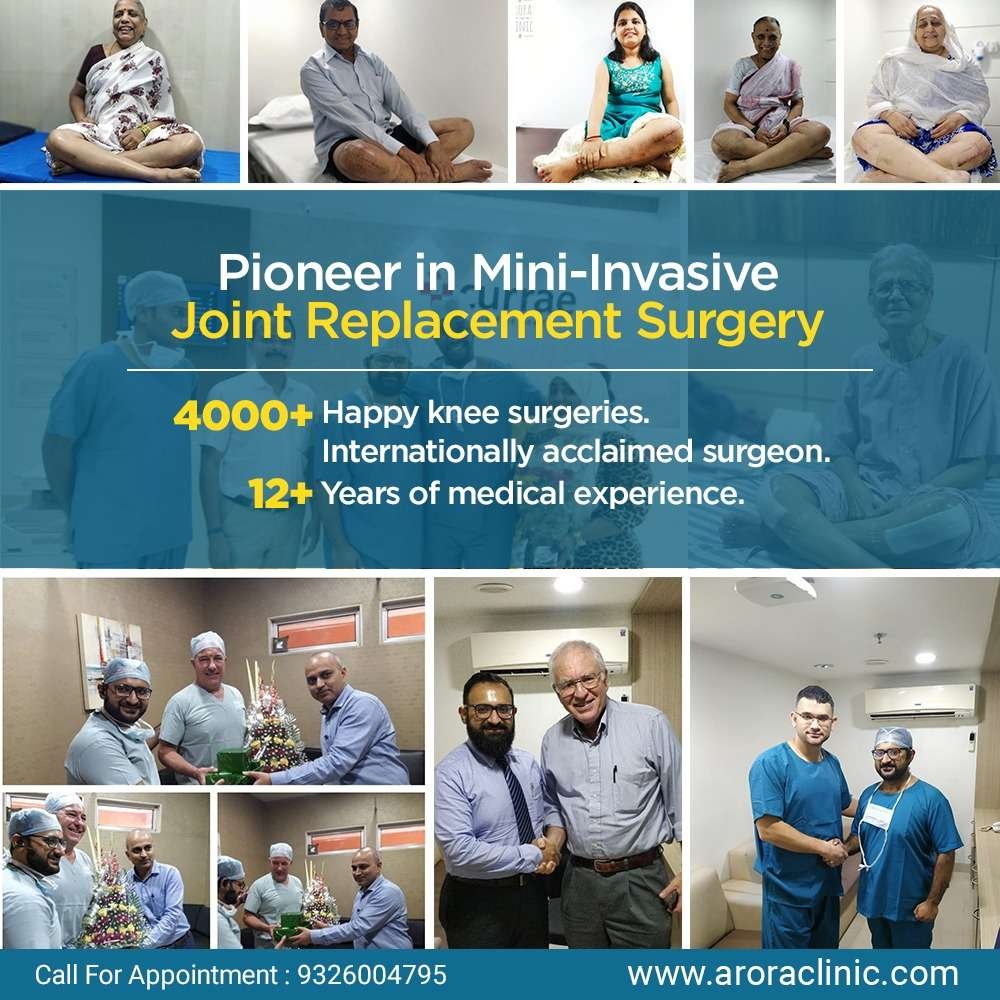
Dr. Bakul Arora’s Joint Replacement Clinic is also known as “Arora Clinic” which is located at Hiranandani Meadows in Thane, within a very convenient proximity to Mumbai. Arora Clinic dedicated clinic for Knee Replacement surgery and all kinds of Orthopaedic treatments and surgeries
The Arora Clinic is one of the most advanced Orthopaedic clinic in Thane region and dedicated to providing the best, personalised healthcare with a breadth of surgical and medical expertise. Arora Clinic offers the modern surgical treatments like “Minimally Invasive Knee Replacement Surgery” which is also called as “PAIN-LESS SURGERY” for any complex knee diseases.
About Surgeon
Dr. Bakul Arora is a Consultant Joint Replacement & Orthopaedic Surgeon is one of the leading Knee Replacement Surgeon in Thane and Mumbai with over 4000+ successfully surgeries. Dr. Bakul Arora specialises in Mini-invasive techniques which offer multiple benefits to patients. He does the surgery using Subvastus approach for Knee Replacement surgery and Direct Anterior Approach for Hip replacement Surgery . This new techniques has many advantages for patients like its pain-less , stich-less surgery, patients walks on the same day after surgery, no blood loss, faster recovery etc.


Patients Review on Arora Clinic
International Patients Videos
FAQS
Knee replacement is required for advanced arthritis of the knee joint, producing painful limitation of movements and restriction in activities of daily living. Knee replacement as a solution should be offered when all non–surgical methods of treatment failed and painkiller medicines and injections also failed to reduce the Knee and hip pains.
Knee replacement can be total or unicondylar, depending on the number of compartments involved. Among the total knee replacement, there are two popular designs- Cruciate Retaining, and Posterior Stabilized. The decision for the design is best taken by the operating orthopedic surgeon based on the integrity of ligaments. Patella resurfacing as a routine is a debatable subject.
Yes, most knee replacement surgeries are minimally invasive, with numerous benefits to the patient, including smaller incisions, less tissue trauma, bleeding and post–operative pain, shorter hospital stays, faster recovery, and earlier return to work and activities — in weeks rather than months. Advantages of Minimally Invasive Knee Replacement Surgery. Patients Start walking in few hours of surgery. Patients start climbing the staircase from second day of his surgery. Patients Discharge with in 3 Days from the Hospital after surgery. No blood loss during the surgery, no blood Transfusion required. Less Physiotherapy.( No Physiotherapist required for home) Less Antibiotic. Stitchless Surgery. Recovery time is just two – three week.
Bilateral knee replacement in the same sitting, can be performed if both the knee joints are damaged to the same extent, however, the medical condition of the patient, and bone quality must be kept in consideration.
Surgery through Minimally Invasive technique patients start walking on the same day and staircase climbing starts from the second day of surgery. Patients can resume his work after 3 – 4 week.
The most significant risks include Infection, Deep vein thrombosis,and Aseptic loosening of implants. The risks correlate with the co-morbid medical condition, and must be discussed with the patient before surgery.
Patients normally require hospitalization for 3-4 days in single knee replacement, and up to 5-6 days in both knee replacement surgery
A single knee replacement takes approximately 90 min- 2 hours. Both knee replacement surgery takes approx 2-3 hours.
Years ago, knee replacement surgery was reserved for elderly patients due to a high complication rate and lack of implant durability. Modern techniques have allowed orthopaedic surgeons to base surgical decisions on a patient’s pain and disability, and not necessarily chronological age. Most patients who undergo knee replacement are between the ages of 50 and 80, but surgeons evaluate patients individually and primarily on their physiologic age and demands.
Patients can resume his/her light work after discharge from the hospital, no need for rest.
Patients are given epidural anesthesia for surgery, and post op pain relief. They are expected to follow instruction from physiotherapist regarding muscle training.
News Events


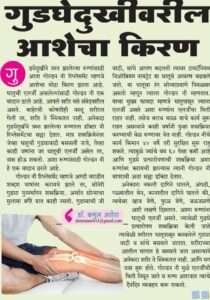

Locate Our Clinic
OUR HOSPITAL PARTNERS
MUMBAI
⇒ Wockhardt Hospital Mumbai Central, Mira road & Vashi
⇒ Apollo Spectra Hospital, Tardeo and Chembur
⇒ Cloud 9 Hospital, Malad
⇒ Criticare Hospital, Andheri
THANE
⇒ Arora Clinic, Hiranandani Meadows
⇒ Bethany Hospital, Vasant Vihar
⇒ Currae Hospital, Kapurbawdi
⇒ Horizon Hospital, Ghodbunder
⇒ Infinity Hospital, Majiwada
⇒ Lakecity Hospital, Khopat
⇒ Oscar Hospital, Majiwada
⇒ Drone Hospital, Bhiwandi


